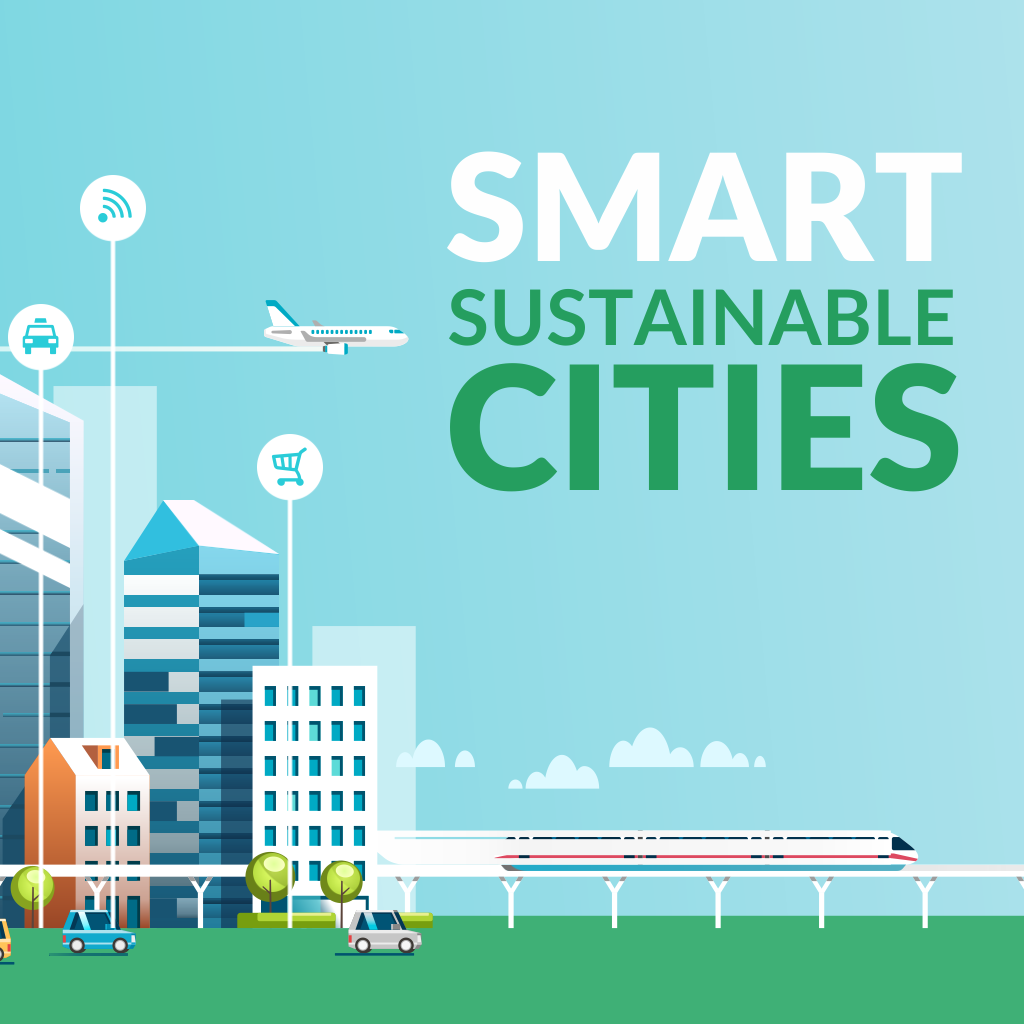Introduction The rapid advancements in technology have revolutionized the way we interact with our environment, and smart building networks have emerged as a key component in creating intelligent and efficient spaces. At the heart of these networks lies the powerful Wi-Fi 6 technology, which is poised to transform the way we connect and communicate within smart buildings. In this article, we will explore the importance and relevance of Wi-Fi 6 in smart building networks and delve into its impact on various aspects of this rapidly evolving ecosystem. Historical Background To truly understand the significance of Wi-Fi 6 in smart building…
Author: jenks2026
Ensuring Network Security for IoT Devices: Safeguarding the Future Introduction The rapid proliferation of Internet of Things (IoT) devices has revolutionized technology interaction, bringing about improved efficiency and convenience. However, this digital transformation also raises significant concerns regarding network security. This article delves into the importance of network security for IoT devices and its relevance in today’s interconnected world. Relevance and Importance of Network Security for IoT Devices The exponential growth of IoT devices has made network security a pressing concern. The interconnectivity of these devices means that a single vulnerability can have far-reaching consequences. Unauthorized access to IoT devices…
Improving Efficiency and Sustainability in Building Management Introduction Autonomous Building Operations refer to the integration of advanced technologies such as artificial intelligence (AI), machine learning, and the Internet of Things (IoT) in building management systems. These technologies enable buildings to operate and control various systems autonomously, resulting in improved efficiency, sustainability, and occupant comfort. The significance of this topic lies in its potential to transform the way buildings are managed, leading to reduced energy consumption, enhanced occupant experiences, and streamlined maintenance processes. Historical Background The evolution of building management systems has witnessed significant advancements over the years. From manual control…
Human-Centric Smart Buildings: Revolutionizing the Future of Architecture Introduction Smart buildings that prioritize occupant well-being and comfort are revolutionizing the design and use of built environments. This article explores the historical background, key concepts, main discussion points, case studies, current trends, challenges, and future outlook of human-centric smart buildings. Historical Background The evolution of smart buildings has been driven by technological advancements. Initially, the focus was on energy efficiency and sustainability. However, the emergence of the human-centric approach shifted the design towards prioritizing occupant well-being and comfort. Pioneering projects like the Edge Building in Amsterdam paved the way for the…
Quantum Computing in Smart Building Analytics: Revolutionizing Optimization Introduction In the era of digital transformation, quantum computing has emerged as a groundbreaking technology with vast potential. This article explores the intersection of quantum computing and smart building analytics, offering insights into how this fusion can revolutionize the optimization of building performance. By harnessing the power of quantum mechanics, quantum computing holds the promise of solving complex problems that classical computers struggle to address efficiently. The integration of quantum computing in smart building analytics has the potential to unlock new frontiers in optimizing energy usage, predictive maintenance, and resource allocation. Historical…
Introduction In today’s rapidly evolving technological landscape, augmented reality (AR) has emerged as a powerful tool with immense potential for various industries. Within the realm of building maintenance and management, AR holds great promise in revolutionizing traditional approaches to tasks and enhancing overall efficiency. This article delves into the importance and relevance of AR in building maintenance, exploring its potential benefits and applications. Historical Background Augmented reality technology has witnessed significant advancements over the years. The concept originated in the 1960s, but it was not until the 1990s that it started gaining traction with the development of wearable displays. Since…
Exploring Ethical Considerations in Smart Building Technology Introduction Smart building technology has transformed the way we interact with our built environment, providing connectivity and automation at unprecedented levels. However, as this technology becomes more prevalent, it is crucial to understand and address the ethical considerations surrounding its implementation. This article aims to delve into the importance of ethical considerations in smart building technology and why it is a timely and intriguing topic. Historical Background To comprehend the ethical considerations in smart building technology, it is vital to examine its historical evolution. From simple automation systems to complex networks of sensors…
Navigating IoT Ecosystems in Smart Buildings: Understanding the Complexity and Challenges Introduction The rapid advancement of technology has brought about the emergence of IoT ecosystems in smart buildings. These ecosystems consist of interconnected devices and components that collect and analyze data to automate various building processes. Navigating these ecosystems can be complex, requiring a deep understanding of the intricacies involved. In this article, we will explore the historical background, key concepts, challenges, and future outlook of IoT ecosystems in smart buildings. Historical Background The evolution of IoT in smart buildings can be traced back to early examples of applications in…
Creating Sustainable and Resilient Smart Cities through Smart Buildings Introduction Smart cities and smart buildings are emerging as key components of sustainable urban development in the 21st century. This article provides an overview of the importance of creating sustainable and resilient smart cities through smart buildings, highlighting their relevance in addressing the environmental, social, and economic challenges faced by urban areas. Historical Background The evolution of smart cities and smart buildings can be traced back to the early 20th century. From the invention of the telephone to the advancements in information and communication technologies, various milestones have contributed to the…
The Future of Smart Buildings: A Revolution in Efficiency and Comfort Introduction Smart buildings have rapidly emerged as a pivotal aspect of modern urban development. With advancements in technology and the growing need for energy efficiency, the future of smart buildings is poised to witness significant transformation. This article provides an in-depth exploration of the concept of smart buildings and why their future is both important and intriguing. Historical Background The concept of smart buildings originated with the integration of technology to enhance energy management and occupant comfort. Over time, these buildings have evolved to incorporate a wide range of…
Introduction In today’s digital age, smart buildings have become increasingly prevalent, revolutionizing the way we interact with our environments. These buildings are equipped with sensors and interconnected systems that collect vast amounts of data to optimize energy consumption, improve occupant comfort, and enhance overall efficiency. However, as the amount of data collected continues to grow, the need to balance privacy and security becomes crucial. Historical Background The evolution of smart buildings and data collection can be traced back to the early 2000s when the concept of building automation gained popularity. Initially, the focus was on energy management and cost reduction.…
Introduction Smart buildings have emerged as a significant concept in the modern world, revolutionizing the way we interact with our built environment. These intelligent structures are designed to optimize energy efficiency, enhance occupant comfort, and streamline operations. Studying the economics of smart buildings is crucial to understanding the financial implications and benefits associated with this innovative technology. This article delves into the historical background, key concepts, and current trends of smart buildings while also addressing the potential challenges and controversies in adopting this technology. Historical Background The development and evolution of smart buildings can be traced back several decades ago.…
Cloud Computing in Building Automation: Revolutionizing Efficiency and Sustainability Introduction Cloud computing has emerged as a game-changing technology in various industries, including building automation. This article explores the definition of cloud computing in building automation, its relevance, and the structure of the article. Historical Background Building automation systems have evolved over the years, transforming the way buildings are managed and operated. The emergence of cloud computing has revolutionized this field, enhancing the capabilities and functionalities of building automation systems. Key Concepts and Definitions Building Automation Systems (BAS) Building automation systems consist of various components that enable the centralized control and…
Building Automation: Revolutionizing Cost Savings and Energy Efficiency Introduction Building automation systems are playing a crucial role in optimizing cost savings and enhancing energy efficiency across various sectors. By incorporating advanced technologies, businesses and organizations can streamline their operations, reduce energy consumption, and achieve significant financial benefits. This article delves into the historical background, key concepts, main discussion points, case studies, current trends, challenges, and future outlook of building automation, highlighting its relevance in achieving cost savings. Historical Background The concept of building automation systems dates back to the 1970s when centralized control emerged as a revolutionary idea. Over time,…
Introduction Improved security in smart buildings has become a crucial aspect of modern infrastructure development. With the increasing adoption of smart building technologies, it is essential to ensure the protection of these interconnected systems and their occupants. This article explores the relevance and importance of improved security in smart buildings, highlighting the need for robust security measures. Historical Background Smart buildings have evolved significantly over the years, incorporating advanced technologies for improved efficiency and convenience. However, this progress has also brought forth security challenges. Understanding the historical development of smart buildings and their security systems provides insights into the need…
Introduction Enhanced comfort and user experience have become essential elements in today’s competitive business landscape. As consumer expectations continue to rise, businesses must prioritize creating seamless and enjoyable experiences for their users. This article explores the definition of enhanced comfort and user experience, their relevance across various industries, and why focusing on user experience is crucial for business success. Historical Background The evolution of user experience and comfort in technology has come a long way. Over the years, numerous breakthroughs and milestones have paved the way for enhancing user experience and comfort. Companies, such as Apple and Tesla, have prioritized…
Introduction The significance of sustainability and green building practices cannot be underestimated in today’s world. With the increasing emphasis on environmental conservation and the urgent need to address climate change, it is crucial for the architecture and construction industry to prioritize sustainability. This article explores the importance of sustainability and green building practices, highlighting their relevance in the context of environmental conservation and climate change. Historical Background The evolution of sustainability practices in architecture and construction can be traced back centuries ago. From ancient civilizations’ use of natural materials to the development of modern green building practices, there have been…
Retrofitting Existing Buildings for Automation: Unlocking Energy Efficiency and Sustainable Building Management Introduction Automation has become essential for efficient and sustainable building management in today’s fast-paced world. Retrofitting existing buildings for automation is crucial as it allows for optimized energy consumption, improved occupant comfort, and increased overall productivity. This article provides a comprehensive overview of the historical background, benefits, techniques, case studies, current trends, challenges, and future outlook of retrofitting existing buildings for automation. Historical Background Automation in buildings has a long history that spans several decades. Over time, advancements in sensors, controls, and communication protocols have revolutionized automation technologies…
Sustainable Materials for Smart Buildings: The Key to a Greener Future Introduction Sustainable materials are essential for the development of smart buildings, which aim to be energy-efficient, environmentally friendly, and technologically advanced. As the world faces the challenges of climate change and resource depletion, the importance of incorporating sustainable materials in building construction becomes increasingly evident. This article explores the historical background, key concepts, benefits, implementation considerations, case studies, current trends, challenges, and future outlook of sustainable materials in smart buildings. Historical Background The use of sustainable building materials has evolved over time as a response to the need for…
Smart Building Architectural Trends: Creating Sustainable and Efficient Buildings Introduction Smart buildings have gained significant attention in architectural trends, revolutionizing the design and operation of buildings. Equipped with advanced technologies, these buildings optimize energy consumption, enhance occupant comfort, and improve overall efficiency. In this comprehensive article, we will explore the relevance and importance of smart building architectural trends, along with key concepts, case studies, current trends, challenges, and future outlook. Historical Background Building automation systems laid the foundation for smart building architecture. Early pioneers recognized the potential of integrating technology into buildings to improve functionality and sustainability, paving the way…




















